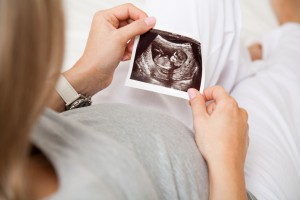Total fertility rate
Nutrition for fertility and pregnancy is included in our functional approach to male and female fertility nutrition. We treat with care for the individual and also the couple, at Susannah Makram Clinics
What 5 Factors affect fertility?
Total fertility rate – What affects fertility?
1. Poor nutrition is the biggest factor that affects fertility. Nutrition during pregnancy is seen by measurements taken of a growing a healthy baby. 4 to 6 months before trying to conceive couples are building the foundation. A woman’s body is ready to provide a nourishing environment for growing a baby.
The 9 months of pregnancy are now considered by a lot of researchers to be the most consequential period of our lives. Before we are even born, this time is most important in determining our health for the rest of our life. [tweetthis]Before we’re even born, this time is most important in determining lifetime #health [/tweetthis]
Babies that are born at a low birth weight, which is primarily determined by maternal nutrition, have a significantly higher risk for diseases. These disease include heart disease, diabetes, hypertension, kidney disease. Later in life the risk for these diseases rises independently of lifestyle risk factors.
For healthy sperm
Obesity in men affects fertility because accumulation of fat in the thighs increases the temperature of the scrotum. This in turn adversely impacts sperm quality. Infertile men have lower concentrations of DHA and EPA in their sperm. They are unlikely to be eating eating enough of the long chain omega-3 fats.
2. This is followed closely by stress
Moura-Ramos, M., Gameiro, S., Canavarro, M., Soares, I. and Santos, T. (2012). The indirect effect of contextual factors on the emotional distress of infertile couples. Psychology and Health, 27(5), 533-549. (10.1080/08870446.2011.598231)
Barnea ER, Tal J. Stress-related reproductive failure. J In Vitro Fert Embryo Transf. 1991 Feb;8(1):15–23.
50% of infertility is caused by male factors. Oxidative stress is caused primary by excess intake of industrial seed oils, stress and lack of physical activity can damage sperm quality.
The biggest factor keeping women from getting pregnant is the modern lifestyle and it is a big problem because already 1 in 7 women have trouble conceiving. A study out of the UK that suggested that this number could rise to 1 in 3 by 2020.
What affects fertility? Other Factors:
3. Environmental toxins – there are a lot of toxins that end up being endocrine disrupters. These throw the hormones out of whack and that makes it difficult for women to get pregnant.
4. Medications like birth control – A medical term has been coined Post Birth Control Syndrome or ‘post-pill amenorrhea’
In some women, it may take some time for their menstrual cycle (and subsequently their fertility) to return to normal when they stop taking birth control pills. The main symptom is a rather obvious one. A woman is unable to conceive even after she has discontinued the use of the birth control pill. Generally speaking, your period should resume within three months. If you have a history of irregular periods and took the pill to regulate your cycle, you may not have a period for many months after you stop taking the pill. If you do not have a period within 6 months, you should see your doctor to determine the cause.
What affects fertility?
5. Medications that affect hormones, metabolism, and synthesis i.e. modern lifestyle
50% of infertility is caused by male factors. Men should be testosterone dominant not oestrogen dominant and oestrogen dominance in men leads to hypogonadism and infertility. The lower the sperm count and the poorer the sperm quality, the longer it will take to get pregnant. The omega6/omega3 balance is probably one of the biggest factors in male infertility.
Side effects of long-term NSAID usage. Long term use or a high dosage of NSAIDs, such as ibuprofen or aspirin, can make it more difficult for you to conceive. Medicines used for chemotherapy (a treatment for cancer) can sometimes cause ovarian failure. This means your ovaries will no longer be able to function properly. Ovarian failure can be permanent.
Side effects of spironolactone. Fertility should recover around two months after you stop taking spironolactone for fluid retention.
Side effects of Neuroleptic medicines. Neuroleptic medicines are antipsychotic medicines often used to treat psychosis. They can sometimes cause missed periods or infertility.


